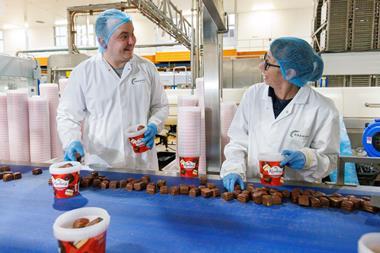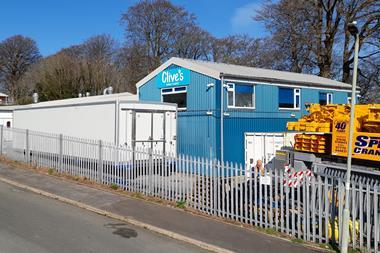Bakeries may be left counting the cost of a proposed plastics levy and an increase in national living wage following yesterday’s Autumn Budget 2018 (29 October).
High street bakeries are among the businesses that will be taxed for using plastic which is not as least 30% recycled, according to the Treasury.
The proposed levy, announced by Chancellor Philip Hammond, aims to reduce the “scourge of plastic” littering the planet and oceans, and would apply to the production and import of plastic packaging from April 2022.
The Chancellor said further detail and an implementation timetable would follow consultation before adding that there would be no tax on single-use takeaway cups.
A 25p charge on disposable cups was recommended by the Environmental Audit Committee in March after it emerged that the UK throws away 2.5 billion disposable coffee cups every year with almost none recycled and half a million a day littered.
However, Hammond concluded that a tax in isolation would “not at this point, deliver a decisive shift from disposable to reusable cups across all beverage types”.
“I will monitor carefully the effectiveness of the action the takeaway drinks industry is already taking to reduce single-use plastics and I will return to this issue if sufficient progress is not mad,” he said.
Ian WrightCBE, chief executive of the Food and Drink Federation, warned that the plastics proposals could mean increased costs for the industry.
“While we are committed to reducing packaging waste and working with government, today’s new tax on plastic packaging will result in significantly increased costs for UK food and drink manufacturers, due to the input costs required to produce food-grade recycled packaging,” he said.
“However the shadow of Brexit, and in particular a ‘no-deal’ Brexit, hangs over the food and drink industry and gets darker every day. While that remains the case, it is hard to see how we can long continue with business – or politics – as usual.”
The Chancellor also confirmed that the National Living Wage would increase from April 2019 from £7.83 an hour to £8.21, equating to a £690 annual pay rise for a full-time worker.
Meanwhile, Wright said food and drink manufacturers – 97% of whom are SMEs – would welcome the Chancellor’s announcements on exports, infrastructure, enterprise and business rates, among other things.
In the Budget, Hammond announced that small retail businesses in England with a rateable value of £51,000 or less would see their business rates bills cut by a third for two years from 2019. This would amount to an annual saving of up to £8,000 for up to 90% of all independent shops, pubs, restaurants and cafes, he said. The VAT threshold for small businesses has also been frozen for two years.
“Through the Budget, the Chancellor is now using the strength of the Treasury to back small business,” said Mike Cherry, national chairman of the Federation of Small Businesses.
“We have already seen a significant change of tone in recent months towards helping businesses, right from the top of Government, and today represents the change of policy that backs this up. This is long due recognition that small firms are the UK’s job creators and community leaders. The productivity challenge for this country will only be resolved by backing small business, and today marks an important step to achieve this.”
































No comments yet